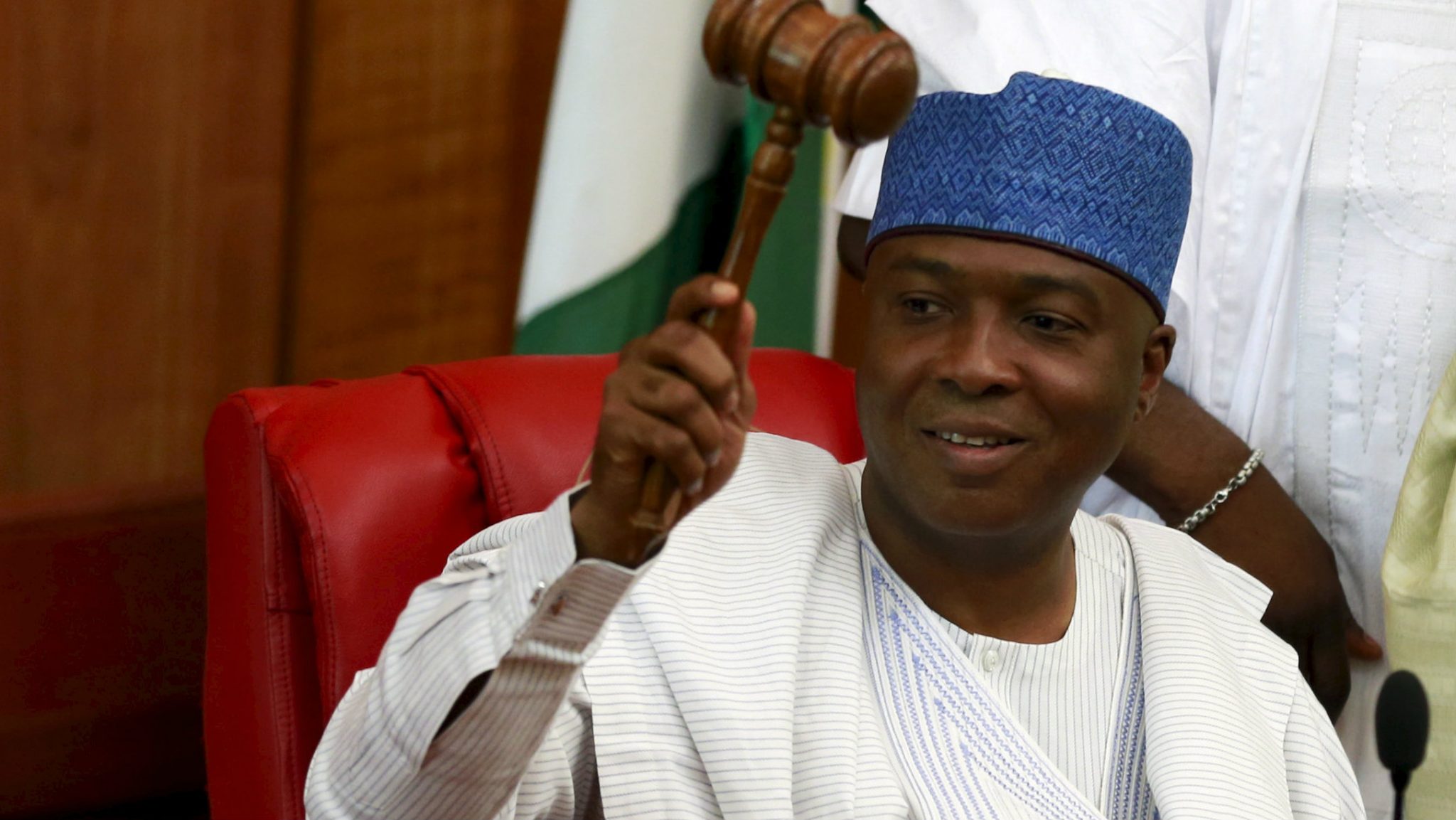The Nigerian Senate on Thursday experienced rowdy plenary session as Senator, Enyinnaya Abaribe (PDP, Abia State) described President Muhammadu Buhari as ‘incompetent’ leader.
Abaribe had come under order 43 to discuss the issue of insecurity in Nigeria.
Recall that the senator in March criticised President Buhari for constantly denying responsibility when the country faced certain challenges.
“A few days ago, in this chamber we talked about the security of Nigeria,” he said. “I recall that on the matter of herdsmen versus farmers, two explanations were given by highly ranked security personnel in the country. First of all, the Inspector General of Police said that these killings were as a result of laws being passed by states. Secondly, the Defence Minister said these killings were as a result of the blockage of grazing routes. And we continued to look at all these explanations.
“Yesterday, in London, the Commander-in-Chief and President of Nigeria, Muhammadu Buhari said that these killings were as a result of the people who were trained by the late Muammar Gaddafi, implying that these people who are doing these killings in Nigeria are invaders from outside of Nigeria. And if he even said they are invaders, what it means is that it validates my last point that when a commander-in-chief says he cannot take care of invaders, why is he still a commander-in-chief?
“Why do we still continue to indulge this president that everywhere goes along to tell everybody outside this country that he is totally incompetent? Because it’s is obvious…”
He, however, cut short by the Senate President, Bukola Saraki, as senators, mostly from the ruling APC, reacted.
“You can’t finish, you can’t finish,” they shouted suggesting to the Senate President not to allow Sen. Abaribe continue his speech.
After a partial restoration of order, Senate Leader, Ahmed Lawan, cautioned Abaribe and asked him to withdraw his statement.
“The President of the Federal Republic of Nigeria is the leader of this country and deserves the respect and courtesy of this chamber and those of us in it. I was once a member of the opposition and I do not recall ever calling (out) the then president or insult(ing) him. This is our institution. If we do not conduct ourselves with respect, nobody will. I want to ask my colleague to immediately withdraw his statement and apologise to this chamber,” he said.
But an irate Abaribe refused to withdraw the statement, leading to more anger from the other senators who insisted he did so.
The chamber was again chaotic for several minutes as protests from APC senators continued.
It took the intervention of the Senate President to make Abaribe withdraw the statement partially.
“I am very well guided by you but and I say Mr President that there are words that there are no alternatives to. What I did was to interpret the words by Mr President in London and I juxtaposed it with the explanations here. What it tells me is that there is a conflict.
“If any word I used is misunderstood by anyone, I apologise. All I am saying is simple. The heads of security in Nigeria made several explanations for the killings of our citizens and there is a dis…”
After another rowdy session, the Deputy Senate Leader, Ibn Na’Allah, coming under sections Order 53 and 54 said Abaribe ”was not in order for tabling an issue that deals with Mr President without raising a substantive motion”.
“The issue is you cannot even raise any issue regarding the conduct of the president,” he said.

